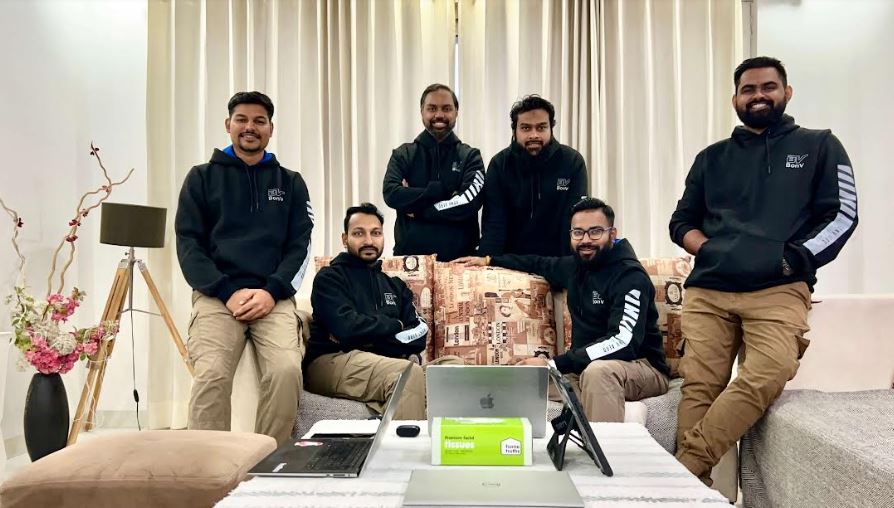
19th January 2024, Bhubaneswar: Aerial logistics drone startup BonV Aero has raised INR 6 Crore in a round led by Inflection Point Ventures (IPV). Funds will be primarily directed toward client demonstrations, team expansion, and internal R&D focused on enhancing products for customers, researching propulsion systems and advancing power plants.
BonV Aero revolutionizes aerial mobility through cutting-edge electric vehicles for both goods and passenger transportation specializing in state-of-the-art aerial vehicles tailored for challenging terrains like the Himalayas. The company’s focus extends to critical needs such as Indian defense logistics, disaster relief, emergency medical services, supply chain logistics and rapid commerce deliveries. BonV Aero stands as a brand synonymous with top-tier safety and unparalleled convenience in aerial transportation.
BonV Aero’s startup journey is already marked by big wins like ranking amongst top 3 finalists on “Meet the Drapers” TV Show in the USA late last year. The startup is led by Satyabrata Satapathy (CEO & Co-founder), Gaurav Achha (Co-CEO & Co-founder), Abinash Sahoo (CTO & Co-founder), Rahul Kumar (Chief of Design & Co-founder), Sultan Khan (Chief of Manufacturing & Co-founder) and Umang Rathi (Chief of Operations & Software) who collectively bring diverse expertise from renowned companies like Asteria Aerospace, Bosch Automotive and ISRO.
Madhukar Bhardwaj, Sr. Vice President, Inflection Point Ventures, says, “Aerial logistics has been a boon during emergencies, however, it comes with its own challenges. Understanding the power of aerial space transportation, BonV Aero has developed a state of art technology and is one of India’s pioneering multi-utility electrical air vehicles having demonstrated the capability of carrying 50 kilos in hilly regions, providing much-needed relief during natural calamities and when surface movements are unfavorable. These drones are clean, smart, sustainable, and most importantly safe and affordable. With one of its kind innovative products, the company is sure to scale business across borders and we at IPV look forward to extending our strategic support.”
BonV Aero stands out for creating India’s first logistic aerial vehicle, capable of carrying 50 kilos over 10 kilometers at 10,000 feet in hilly regions and have backed commercial orders. This innovative vehicle operates autonomously, without constant pilot intervention, thanks to its self-flying technology. Its in-house propulsion system ensures efficient flights in extreme weather and high altitudes, marking it as a reliable choice for challenging conditions.
At present, BonV Aero is actively conducting product trials with the Indian Army, marking an initial phase in an operational scale.
Satyabrata Satapathy, CEO & Co-Founder, of BonV Aero, says, “Funds will be deployed to mature our current Aerial Platform and conduct demonstrations to scale orders in this segment. The support from IPV investors significantly bolsters our confidence in the path we’ve traveled and our vision to revolutionize aerial mobility for both goods and people in India and worldwide. I appreciate the seamless deal flow, characterized by sharp timelines, as we firmly believe that, in addition to financial backing, time is a critical factor in any startup journey. We also extend our gratitude to the Dynamic Orbits team, our advisors and mentors for their constant support in our fundraising and growth journey.”
BonV Aero is incubated at AIC CV Raman Global University, Odisha, and has secured the HDFC CSR Social Impact Grant. They’ve partnered with respected institutions like IIT Mandi and Bhubaneswar, and are recognized among the top 10 startups selected by the Indian Army’s Army Design Bureau (ADB). Collaborations with IITs drive innovation, and nods from Headstart Network Foundation and NITI Aayog highlights their role in India’s innovation landscape.
The logistic aerial vehicle market in India is estimated at $6.7 billion, while the global market is projected to reach $44 billion by 2027.